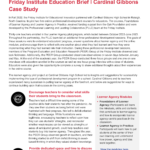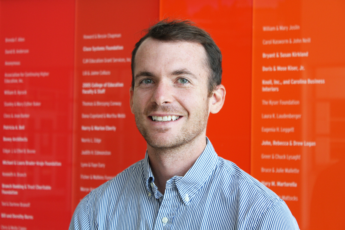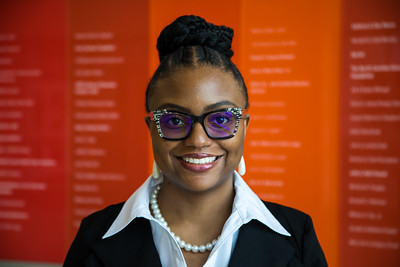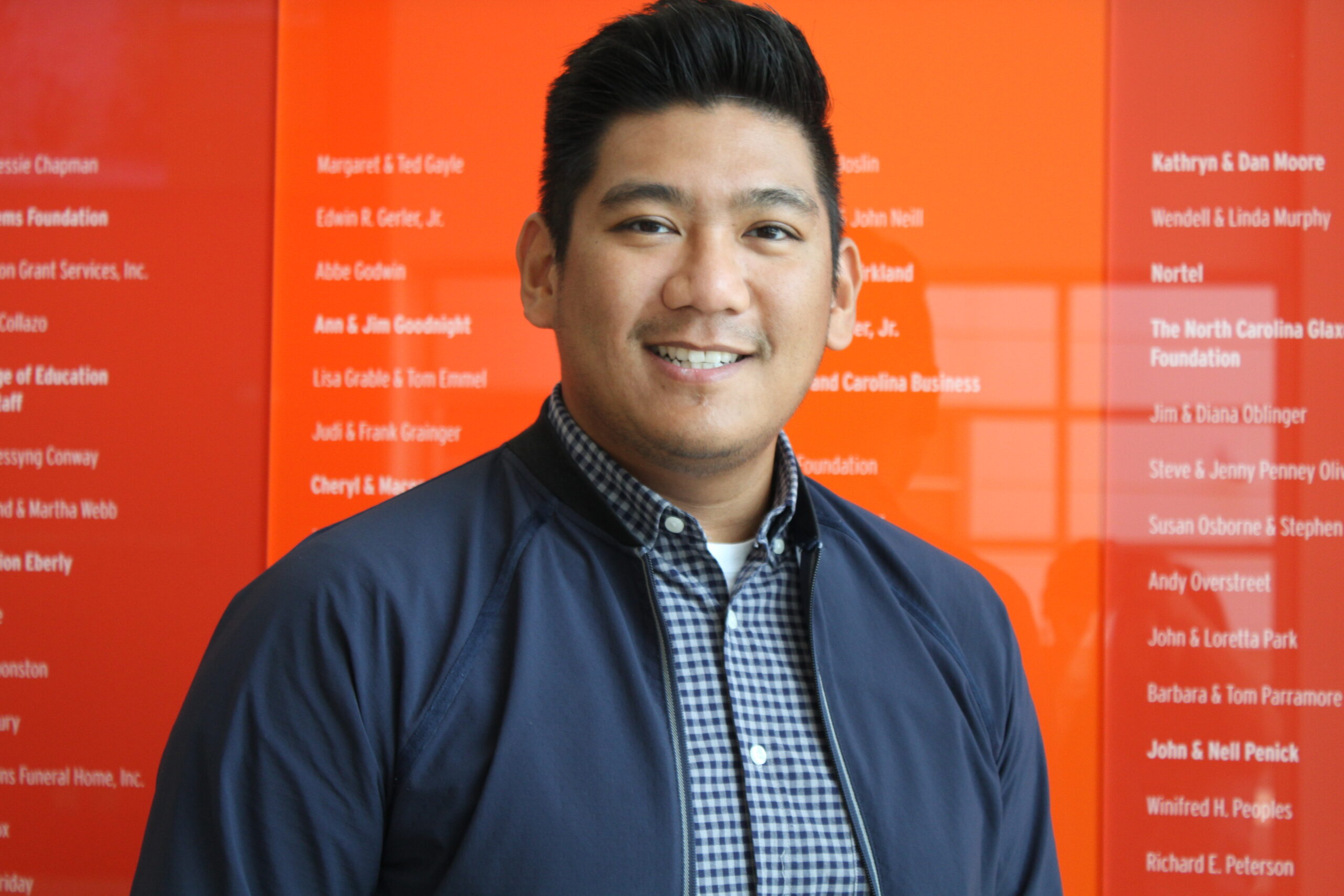Friday Institute Education Brief: Cardinal Gibbons Case Study Report
In Fall 2022, the Friday Institute for Educational Innovation partnered with Cardinal Gibbons High School in Raleigh, North Carolina, to pilot two free online professional development courses for educators. The courses, Foundations of Learner Agency and Learner Agency in Practice, received funding support from the Oak Foundation and were developed by the Professional Learning and Leading Collaborative (PLLC) team at the Friday Institute.
Thirty-one teachers enrolled in the Learner Agency pilot program, which lasted between October 2022-June 2023. Throughout the partnership, the PLLC team led an additional three professional development sessions. The goals of these sessions were to understand educators’ progress, answer questions about learner agency and the online modules, and encourage them to reflect with one another about what they had learned and how they were implementing what they had learned into their instruction. During these professional development sessions, members of the Program Evaluation and Education Research (PEER) Group at the Friday Institute observed and took fieldnotes. Additionally, the PEER Group conducted classroom observations on seven days between January and May. At the end of the academic year, the PEER Group conducted three focus groups and one one-on-one interviews with educators enrolled in the courses as well as one focus group interview with a class of students. Educators were also given the opportunity to complete a survey to share additional thoughts about their experiences in the online course.
The learner agency pilot project at Cardinal Gibbons High School led to insights and suggestions for successfully implementing this type of professional development program in a school. Cardinal Gibbons and its teachers experienced many successes in putting learner agency at the forefront, and below are suggestions for ways to continue building upon that success in the coming years.
Encourage teachers to consider what skills their students bring to the classroom.
Teachers had a difficult time seeing some of the positive skills their students had after the pandemic. As they saw their students as being behind and were frustrated with their progress, this led to deficit-oriented thinking and language. While frustrations were legitimate, encouraging teachers to reflect upon how they can use students’ strengths, and reconsider whether weaknesses can be viewed as strengths or areas of anticipated growth, could help teachers and students buy into learner agency. Throughout the year, the PEER Group observed growth in teachers, and their thinking started to shift from deficit thinking to asset-based thinking in which they valued student knowledge.
Provide dedicated space and time to discuss lessons learned from professional development.
Throughout the professional learning community (PLC) observations and subsequent focus group interviews, it was clear that educators valued having time to talk about the online course they were completing. While the online discussion forums that were part of the course were impactful, it was the in-person conversations that helped solidify implementation of learner agency in the classroom as well as how to adjust strategies that may not have been successful with students the first time around.
Emphasize taking small steps during implementation.
Engaging in and applying course objectives can be intimidating when participating in a lengthy professional development program. Therefore, encouraging teachers to try out small adjustments to their instruction can help create small wins and encourage success. By starting out small, teachers may gain the confidence to begin attempting to implement more complicated strategies.
Encourage activities that strengthen student-teacher relationships.
Data collection efforts showed how important strong relationships with teachers were for students. Students valued when their teachers took time and made cognizant efforts to get to know them as people. Students appreciated when teachers incorporated flexible learning activities and assignments, which gave them opportunities to demonstrate their own learning strengths as well as display their own personal interests in the subject matter.
Use physical space to make small changes that encourage learner agency.
Classroom teachers noticed that their relationships with students changed when they adjusted their physical space to put their students on a more equal playing field with them. When teachers used student desks or walked around the classroom rather than standing in front of a podium, they noticed how students felt more comfortable and confident asking questions. This growth in confidence can encourage students to begin taking charge of their own learning.
View Resources




